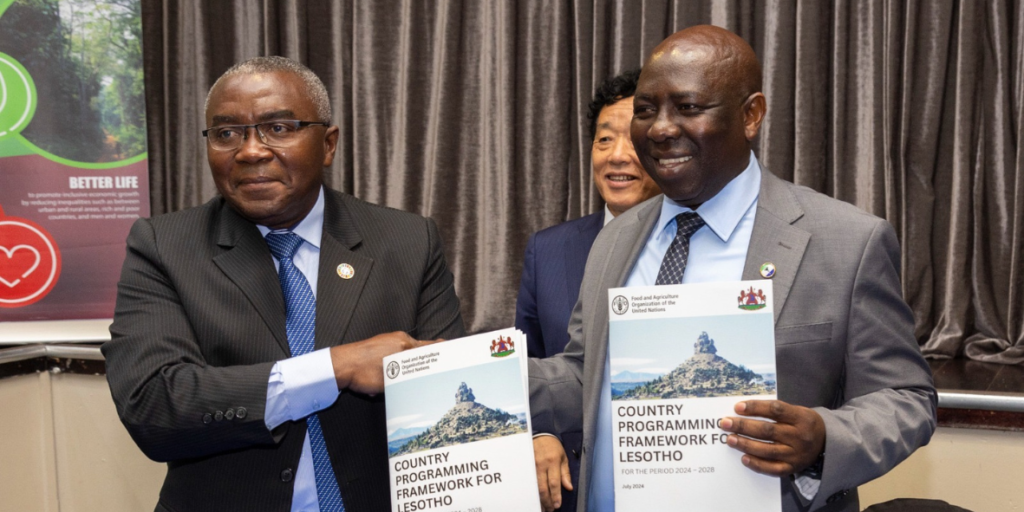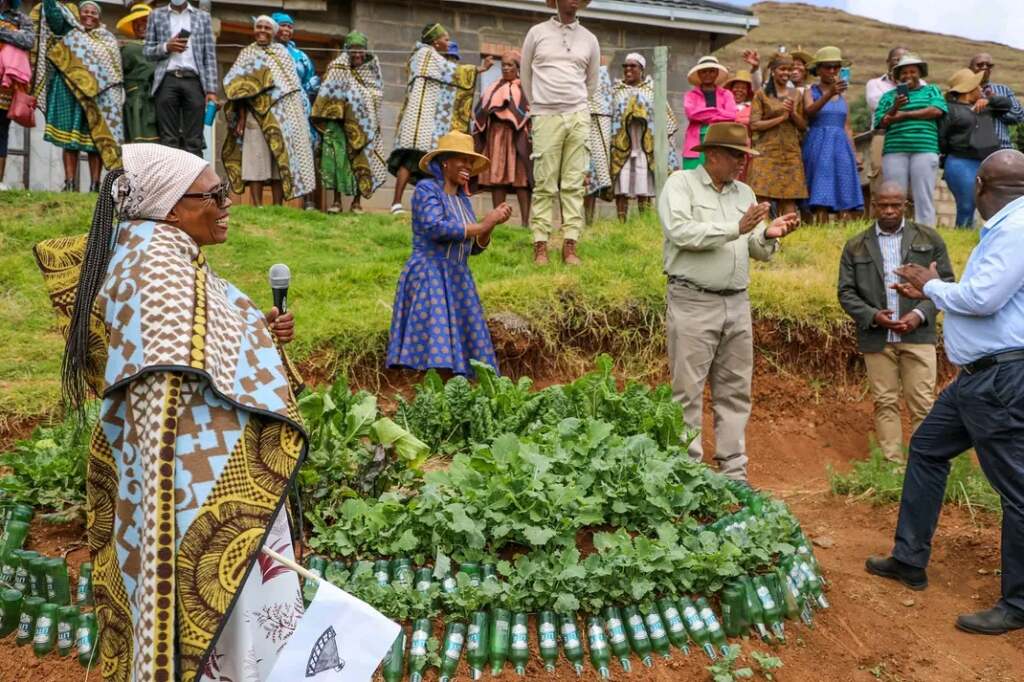Ntsoaki Motaung
The government of Lesotho and the Food and Agriculture Organization of the United Nations (FAO) have signed a new Country Programming Framework (CPF) aimed at transforming the country’s agrifood systems.
In addition to the CPF, three key Technical Cooperation Projects (TCPs) funded by FAO were signed. These projects provide seed money and catalytic funding for the implementation of the CPF.
The signing ceremony was overseen by FAO Director-General Qu Dongyu during his five-day visit to Lesotho, following an invitation from His Majesty King Letsie III, who is an FAO Goodwill Ambassador for Nutrition.
The signing of the agreements coincided with the ongoing commemoration of the country’s 200th anniversary.
The FAO CPF is a strategic plan that outlines FAO’s support and priorities to assist a country in achieving sustainable agricultural development and food security.
The newly signed CPF will guide FAO’s support to Lesotho over the next five years, focusing on enhancing agricultural production and productivity, promoting sustainable management of natural resources, and building climate resilience.
At the signing ceremony, Thabo Mofosi, the Minister of Agriculture, Food Security, and Nutrition, who signed on behalf of the government of Lesotho, highlighted the importance of the agreement in transforming people’s lives.
“I am glad to have the opportunity of receiving this project, the Country Programming Framework (CPF) project. Mine is just to receive this important project from FAO, and the important thing is to emphasize the commitment of my ministry to do well in implementing this project. The main thing we have to change is the Basotho people’s lives,” Mofosi said.
Dr. Qu, the FAO Director-General, emphasized the importance of strong partnerships in achieving the Sustainable Development Goals (SDGs), particularly those related to food security and sustainable agriculture. He noted the critical role of collaborative efforts in transforming agrifood systems to be more efficient, inclusive, resilient, and sustainable.
“During my discussions with you these past days I have listened to you and appreciated the work that your respective ministries are doing with FAO, and more importantly, on what we can do to further strengthen our collaboration to ensure even more impactful results,” he said.
He highlighted the challenges and opportunities facing Lesotho, including the need to shorten agrifood value chains to make them more resilient to shocks. He acknowledged the impact of the COVID-19 pandemic and recent avian influenza outbreaks on the country’s food security and livelihoods, emphasizing the importance of building more resilient food systems. He also said FAO will work with Lesotho to tap into funding opportunities through the Global Environment Facility and the Green Climate Fund.
The three key Technical Cooperation Projects (TCPs) that were signed include one focusing on the FAO Digital Villages Initiative, which aims to harness digital technologies to improve agricultural practices, enhance market access, and boost rural development in Lesotho.
The second project is the FAO Green Cities Initiative, which seeks to promote urban agriculture and sustainable urban planning, and to create greener, more livable cities while addressing food security.
The third project focuses on aquaculture and aims to promote the development of the aquaculture value chain, enhancing food security and creating job opportunities.
Summary
- The government of Lesotho and the Food and Agriculture Organization of the United Nations (FAO) have signed a new Country Programming Framework (CPF) aimed at transforming the country’s agrifood systems.
- At the signing ceremony, Thabo Mofosi, the Minister of Agriculture, Food Security, and Nutrition, who signed on behalf of the government of Lesotho, highlighted the importance of the agreement in transforming people’s lives.
- He acknowledged the impact of the COVID-19 pandemic and recent avian influenza outbreaks on the country’s food security and livelihoods, emphasizing the importance of building more resilient food systems.

Your Trusted Source for News and Insights in Lesotho!
At Newsday Media, we are passionate about delivering accurate, timely, and engaging news and multimedia content to our diverse audience. Founded with the vision of revolutionizing the media landscape in Lesotho, we have grown into a leading hybrid media company that blends traditional journalism with innovative digital platforms.










